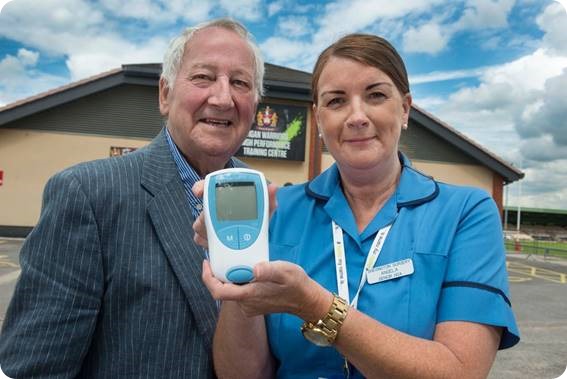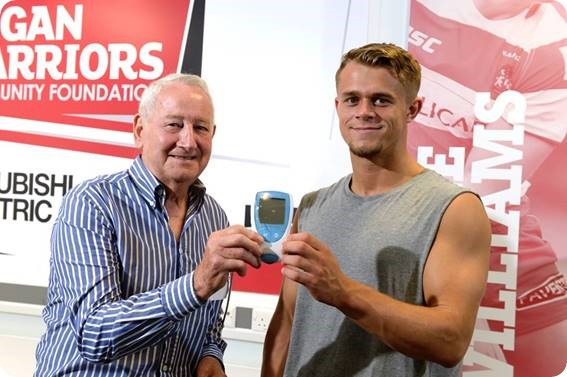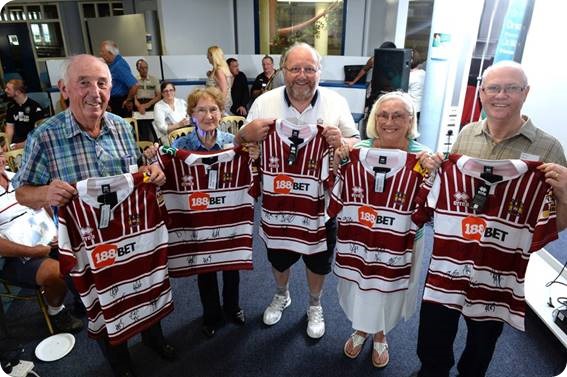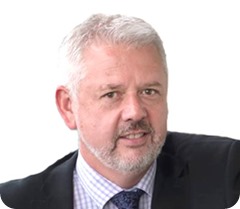What are the main challenges you have come across when trying to convince healthcare professionals and NHS officials to embrace digital health?
There are a number of challenges facing a small but innovative technology company like ours. The first is that they're always far too busy doing things the old way to think about how to do things the new way. It's an easy excuse to say "I’m too busy; I haven't got time to learn this; I haven't got time to do that." They keep doing things the old, unproductive way at the cost of preventing change.
Another challenge comes from nurses and other healthcare professionals that may worry about the impact self-monitoring tools may have on their jobs as they fear people won’t have to come into clinic anymore. In actual fact we know the NHS is scouring the world for qualified doctors and nurses to come and fill all the vacancies that already exist.
The biggest issue ultimately is that there's no leadership in this space. However, hopefully the Sustainability and Transformation Plans (STPs) will start giving some regional leadership.

Patient John Binks ©Inhealthcare
Are there any myths about digital health you’d like to dispel?
The biggest myth is that old people don't like technology. Many healthcare professionals say that old people like coming into clinic, but the truth is many people don’t actually like it. They might tell the people in the clinics they like coming in because they’re being polite, but in reality, many old people don't like going to hospitals and they're not scared of using technology if it's presented to them in an accessible way.
Self-testing and being connected to the surgery has provided me a lifeline in achieving positive and productive outcomes in my personal health. The service is as easy and making a cup of tea and I encourage all to give it a go.” John Binks, 84 year old patient from Wigan.
Read John’s story: http://www.inhealthcare.co.uk/resource/john-binks/
I think the bigger challenge will be making technologies engaging for younger people. They might know how to use technologies, but if it doesn't interest them, then they'll go elsewhere. This will be particularly important for implementing lifestyle changes such as weight management and diabetes management. I think that will be a bigger challenge than getting old people using simple technology to improve their lives.

John Binks with Wigan Warriors star Lewis Tierney at a patient awareness day for warfarin users in Wigan ©Inhealthcare
What impact do you think digital health could have on the NHS and healthcare worldwide?
We have worked out that if the NHS does adopt digital health, just one of our services could save 25 million clinic visits by people who are on stroke management. That's a lot of resource freed up to address problems that need the intervention of a nurse or doctor.
The phrase I use is whether people can “add value,” so instead of measuring things, they're actually dealing with things, bringing their expertise to bear and treating the problem, rather than measuring it. People can measure themselves using our technology.
Imagine, if you've got 25 million clinic visits saved on one service, if you extended that to 20 services, you're talking about preventing hundreds of millions of unnecessary visits to hospitals. You think about how that frees up resources in the NHS.
Then, take it a step further. What's the impact on traffic, on the environment, on the productivity of the country because people can measure themselves in their own time, rather than having to take three hours off work? The massive impact is not just on hospitals, but, of course, getting that message across can be difficult.
Globally, I guess there are two main markets. If you look at the US market, I think digital health could have a massive impact by reducing spend for face-to-face appointments, if it's not already. It could also help Americans who are currently outside of their health system.
In the subcontinent and in China, hundreds of millions of people are outside of their health system. If they've got cost-effective digital health solutions, then it could massively improve their health and well being. The knock-on effects on their economies with them having a healthier and more productive workforce is enormous.
What needs to be done to overcome resistance to digital health in the NHS?
Obviously, people like ourselves have got a hearts and minds challenge, which we have to address, as you would in any business, but we’re a small company in Harrogate and there's a limited amount we can achieve.
I'm hoping what I'm seeing around the STPs and the fact that the government is funding these to use technology and change behavior, helps with the leadership issue, but someone is needed in the Department of Health who has a profile on a political level, and a remit to offer leadership on this vital part of solving our healthcare issues.
The technology exists here and now. For example, we’ve been connecting apps to GP records for well over two years. You can speak to people in NHS England until you're blue in the face and all they'll say is “well, we've no authority to do this or we haven't got mandate to do that.” Then, you're left with having to go to 209 Clinical Commissioning Groups (CCGs).
They have to show some leadership. There’s £4 billion gone into NHS England in advance to effect technology transformation. You've got to tie that up with the STPs, which I know get a lot of negative press. However, these STPs are not just about closing down hospitals to save money, but about changing how you deliver healthcare.
If you can stop hundreds of millions of visits to clinics or hospitals using self management and self measurement, then you can do something significant with the capacity that’s freed up. It doesn't necessarily mean you have to shut the hospital down.
Can you please outline Inhealthcare’s vital signs self-testing service in Norfolk?
We’ve been working with the Norfolk Community Health and Care NHS Trust. One of the features of our platform is that we're not proprietary; we'll work with any technology. We link the information back to the existing clinical system, so you're not creating another portal or another silo of information that your healthcare professional has to jump between to get information - it goes back into one place.
For people who need intensive monitoring after they've had treatment for serious heart conditions, you need to monitor vital signs such as blood pressure, blood oxygen and so on. In Norfolk, the NHS invested in a sophisticated piece of equipment that allows patients to be discharged from hospital earlier. Norfolk's quite a rural county, but people can measure themselves at home, without nurses having to be sent out to their home to see them or the alternative of people having to stay in the hospitals for a prolonged period of time.
When you think of thirty people on the service, it's not a lot of people, but if you imagine when it hits the front page of the national press that, for example, four or five people have been stuck on a trolley in A&E for five hours because there are no beds, getting 30 people out of hospital early frees up beds for people who need them. Then the knock-on effect is important.
We've not yet had the full feedback because the service has only really just been commissioned, so I can't give you specific data but we expect it to be successful. Experience tells us that as long patients are engaged in the process and understand the benefits to them then these services prove to be successful.
We've got people in the North East who are now into the fourth year of using our services. That's a self-testing service for people who are taking warfarin for stroke management. As time has passed, patients expect a bit more sophistication with communications, so we're addressing that and our platform has being designed to easily achieve this.

Patient awareness day ©Inhealthcare
Do Inhealthcare plan to expand this service into other regions? How soon can we expect to see this?
An exact model of the Norfolk service may or may not be expanded depending on the results of the pilot. In this case the gadget that goes in a person's home is a sophisticated piece of equipment and not all trusts will want to take this approach. This is part of the challenge of selling it to the NHS: it's a loose federation of around 500 organizations that's state-funded and offers healthcare free at the point of delivery. It's not a national health service.
The technology we provide to this project is our national health platform. We can communicate with patients in many different ways, and deliver the information collected into the main primary care systems and quite a few of the hospital systems now. Our platform enables any trust or any commissioning group to build their own home monitoring services. The Norfolk service, or a mirror of that service may or may not happen, but the platform supports the ability to do anything any trust or any CCG wants to do. If they've got a favorite widget, which often happens, then we can support that widget and build an integrated service around it. Flexibility of the platform is key.
Once this program is proven to have had a successful evaluation, then it would be good for other trusts around the country to be aware of it and think “well, we can apply it here and apply it there.” That way, the good word should spread.
In Norfolk, in particular, I just wanted to highlight that patients are not left on their own following a serious heart condition. The intensive care team members that surround them are still monitoring what's going on; they're just not having to travel for two hours to do it and the patient is in their own home and comfortable, rather than stuck in hospital.
You still get the same level of attention and care, but the healthcare professionals only intervene if needed, as opposed to people popping in to a clinic and the consultant saying “oh, everything's fine. I'll see you in a week.”
Your care team aren’t ignoring you. We're not just casting people out there with an iPhone and saying “that should fix you.” It's a well thought out care plan and involves a care team who know how to respond and react to different things.
What do you think the future holds for digital health in the NHS?
I do think it will happen. Someone who is a senior person in NHS England said to us a couple months ago that the pressure on the dam is building up and it will burst. I think what we offer is a chance for the NHS to have some control when the dam bursts.
What the NHS ignores at its peril, is that in the days of consumerism, people will choose to do their own thing. If they don't offer them a decent choice, then they'll go off elsewhere, which brings risks because that’s when you end up with what GPs don't want, which is people walking into their local GP Surgery with a smart phone and Fitbit record saying “I think I'm poorly.” They then spend eight of the ten minute appointment looking at this information, with no context to it, to ultimately deduce that actually there's nothing wrong.
By contrast, our platform allows healthcare professionals to be in control of information. They are getting the information that they want, rather than someone dumping a load of information into their inbox saying “have a look at all this and see if you can find a problem.”
You build alerts into the technology; for example if you set an alert to warn you a person’s weight has gone up by two pounds, you can intervene with advice and support. Otherwise, you just let them get on with it. Alternatively, if their weight has dropped by three stone, you might need to check whether something is wrong. Weight management works both ways. It’s for people who are malnourished, as well as people who are eating the wrong things.
The future is not just about the negative points and pressure building up on the NHS; it's about the opportunity to empower patients and help them take more control over their own lives, so they can be fitter, which can be really liberating for lots of people.
From what we have seen, patients who self manage have improved outcomes because they feel in control of themselves. If they go and have their blood test and it takes three weeks for the results to come back, they can't associate, whereas, if you need a blood test every week and you know you've had a binge week and your ratio’s gone way out of kilter, you can associate that behavior with the fact that you've got a problem. Then, people start managing themselves better.
I think there’s an opportunity for the NHS to be at the forefront of innovation on digital health. People in this country are very fond of the NHS and over the last six or seven decades it's been at the forefront of some incredible technological advances. If you can take a lot of the mundane and routine stuff out of the NHS by empowering people to test and monitor themselves, then you can free up the clinicians and experts to do the really incredible, inspiring stuff that could blaze a trail across the world.
The NHS does not shy away from innovation like hand transplants in Leeds, but for some reason, empowering patients does seem to be something they shy away from.
Where can readers find more information?
- We've got lots of information on our website. We've got a team in the UK supporting our information.
- There are details of the warfarin self-management service or the INR service as we call it, on the NICE website.
- There's also a Facebook page as well, which is specifically for INR and that's called “Warfarin at Home”.
- There is also the Inhealthcare Twitter account where we share lots of news, ranging from internal blogs to external coverage by trusted websites such as News Medical.
About Bryn Sage
 Bryn Sage has more than 30 years' experience in the technology industry, beginning as a computer engineer in 1981. In 1986, he joined Storm and progressed through the company to become sales director in 1994. He was appointed to the board of Inhealthcare’s parent company Intechnology plc in 2000.
Bryn Sage has more than 30 years' experience in the technology industry, beginning as a computer engineer in 1981. In 1986, he joined Storm and progressed through the company to become sales director in 1994. He was appointed to the board of Inhealthcare’s parent company Intechnology plc in 2000.
Over the last decade he has driven various innovation projects specifically for the NHS. He became chief executive of Inhealthcare in January 2014.